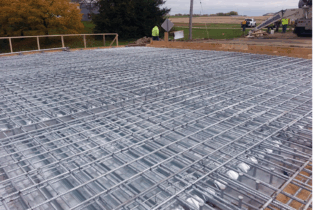The findings of a dipstick survey conducted by the Western Cape Property Development Forum (WCPDF) have confirmed investors and built environment professionals, in both the private and public sectors, are extremely frustrated by the drawn-out and increasingly vague processes being encountered with Heritage applications.
While the survey was a response to numerous complaints received by the WCPDF, specifically from developers, the diversity in respondents from other fields in the property development and construction industries was surprising, says WCPDF chairperson, Deon van Zyl. “Of the 30 respondents to the survey, only 23% were developers,” notes Van Zyl. “Architects accounted for 17%, town planners made up 13% and quantity surveyors 8%. But the biggest surprise was to see numerous responses from heritage practitioners in private practice (7%), members of heritage trusts (3%) and government officials (13%).” What the vast majority of all respondents shared, noted Van Zyl, was frustration around the time-consuming way in which heritage applications were being processed and what appeared to be a high level of subjectivity. “The unintended result is the disintegration of valuable heritage assets with developers unwilling to take on the statutory application challenges and government unable to fund the rehabilitation and maintenance of heritage assets,” says Van Zyl: Among the major findings in the survey were the following:
- While the majority of respondents ideally wanted to treat heritage as an asset, the reality was that due to ill-defined goals by heritage authorities, more than 70% of respondents found heritage resources to be a liability to investors.
- Of all the statutory application procedures that could be triggered by a proposed development (ie: Heritage, Environmental, Water Use Licences, Rezoning and the Subdivision of Agricultural Land Act), heritage scored as the highest risk among 43% of respondents.
- When asked whether applications brought before Heritage Western Cape were thought to be procedurally fair, 43% responded in the negative while 37% felt applications would only receive fair processing in some cases. Only 10% believed applications received a fair procedural process.
- Interestingly, in contrast to Heritage Western Cape’s management of applications, the City of Cape Town scored a substantially higher confidence score with 70% believing on the whole that the City would manage a heritage application in a more fair and transparent manner. Concern was expressed, however, on the weighting given to the opinions of rate payers associations which often contradicted the City of Cape Town’s own planning policies, reflecting the pressure exerted from the ‘not in my backyard’ lobbyists.
- Asked whether the need for a heritage application process would discourage a potential investor entirely from a project, a shocking 73% of respondents said “yes”.
- While few respondents gave detailed accounts of the nature of investment that had been lost to date to stymied heritage application processes, the seven respondents who provided information recorded a total of more than 36 projects just among themselves (35 in the City of Cape Town municipality and one in Drakenstein). These amounted to a loss of investment conservatively amounting to over R4.486 billion. In addition, over R71 million had been lost just in administrative preparation of applications and resubmissions, accounting in some cases for up to five years of consultants’ time wasted and the ultimate loss of thousands of construction site jobs that never materialised.







